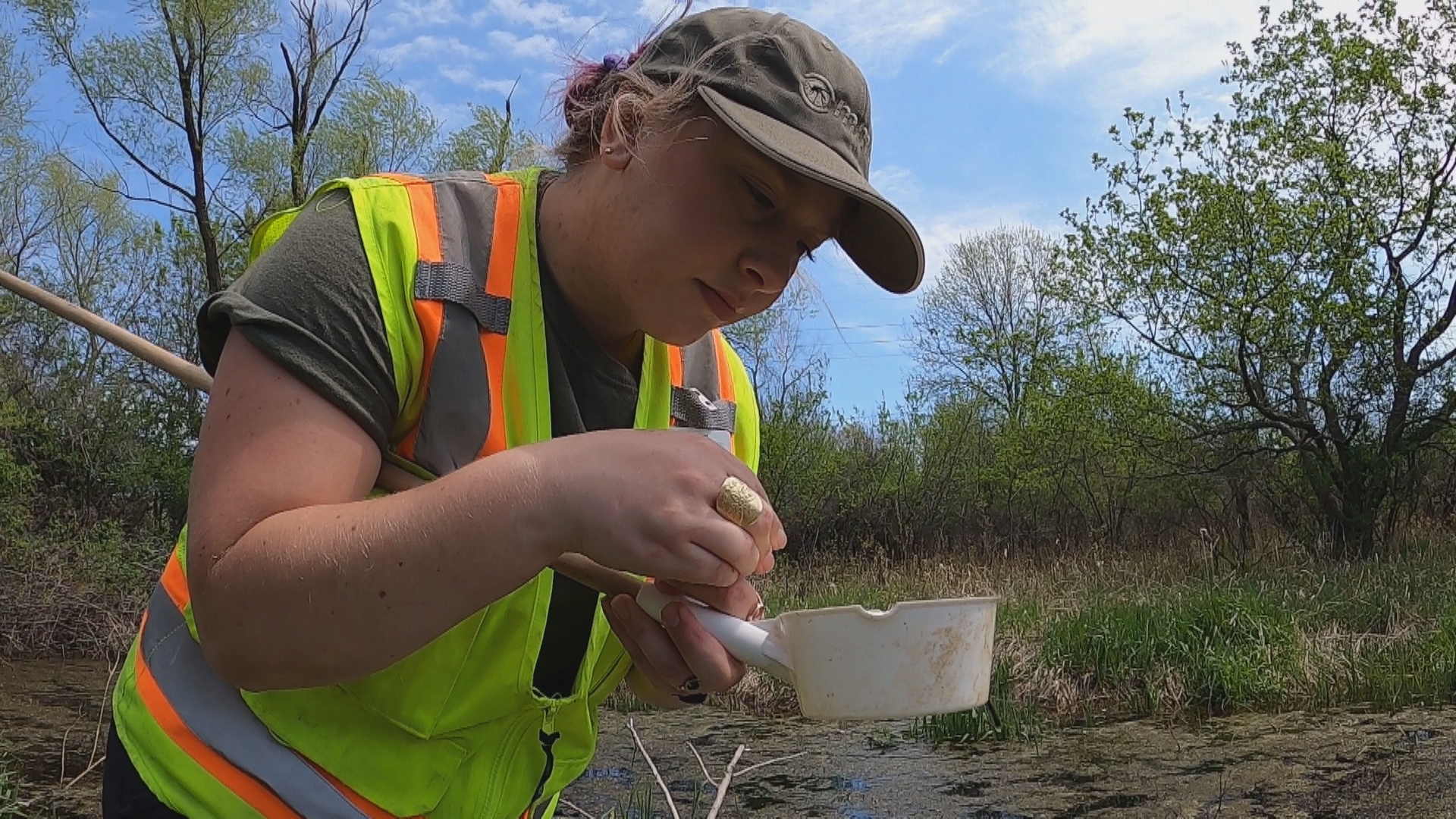OAKDALE, Minn. — Taking a dip in your local pond has a very different meaning when you work for the Metropolitan Mosquito Control District.
All summer long more than 170 field workers will be out "dipping" at thousands of water bodies across the Twin Cities.
“We collect samples from swamps, ponds, and even just ditches that fill up with water,” field technician Kylie Rich-Vetsch says.
Rich-Vetsch was out in the Oakdale area Monday morning collecting samples.
“We’re trying to see if the recent rain is leading to more hatching in this area,” Rich-Vetsch says.
Her recent samples confirm what she and her colleagues were suspecting.
“Oh yeah, there are quite a few in there,” Rich-Vetsch says while looking at a recent sample.
Most samples are sent to the MMCD lab in Saint Paul where a team of technicians will put the samples under a microscope.
“They’re trying to find out what kind of mosquitos are there, because there are certain species that carry disease more than others and some species that don't bite humans. Depending on what kind of mosquito we’re seeing in an area we may or may not treat it,” Rich-Vetsch says.
If the site requires treatment Rich-Vetsch says field crews can apply that treatment three different ways.
“For smaller locations we basically measure out how much treatment the site needs and we throw it into the water by hand,” Rich-Vetsch explains.
For medium-sized areas the field staff can use special backpack applicators that resemble commercial-grade leaf blowers.
"We load the granules of treatment into the backpack and we can direct the treatment where we want it to go," Rich-Vetsch explains.
For the larger bodies of water, the MMCD will send their helicopters to drop the treatment from the air.
The treatment itself is called BTI, which is basically ground-up corn cobs with a special bacteria that kills baby mosquitos in the water.
"It's designed to only affect the mosquitos," Kathy Beadle explains.
Beadle is a field supervisor.
She helps manage MMCD's east warehouse in Oakdale.
“We are one of six field offices in the Twin Cities,” Beadle says.
Each field office will house between 20 to 50 field staff who collect samples on a daily basis.
Beadle says managing mosquitos requires more staff and equipment than people might realize.
“People might see our white or green trucks in their community, but I’m sure a lot of people are wondering what we’re really doing out there,” Beadle says.
In her section alone Beadle says they manage more than 10,000 water bodies.
“It’s a lot to manage. We obviously can’t get to every one of them. That’s why we prioritize areas we know are trouble spots, or high-priority areas that typically need treatment,” Beadle says.
So far this season the mosquitos have been few and far between, but Beadle says based on their samples the first big batch of adult mosquitos should hatch any day now.
“We are seeing a lot of mosquito larvae out there and I would say in the next week or so you’re going to start seeing them flying around,” Beadle says.
“We are finding a lot of mosquito larvae out there. We are thinking it’s not going to be quite as bad as last spring just because of all the snow melt last spring, we had a lot of water whereas this it’s kind of a bit more average I would say,” Beadle says.
WATCH MORE ON KARE 11+
Download the free KARE 11+ app for Roku, Fire TV, Apple TV and other smart TV platforms to watch more from KARE 11 anytime! The KARE 11+ app includes live streams of all of KARE 11's newscasts. You'll also find on-demand replays of newscasts; the latest from KARE 11 Investigates, Breaking the News and the Land of 10,000 Stories; exclusive programs like Verify and HeartThreads; and Minnesota sports talk from our partners at Locked On Minnesota.
- Add KARE 11+ on Roku here or by searching for KARE 11 in the Roku Channel Store.
- Add KARE 11+ on Fire TV here or by searching for KARE 11 in the Amazon App Store.
- Learn more about the KARE 11+ app for Apple TV in the Apple App Store.
- Learn more about KARE 11+ here.

